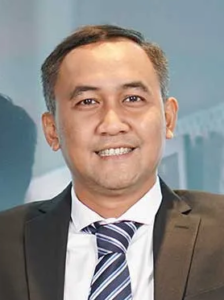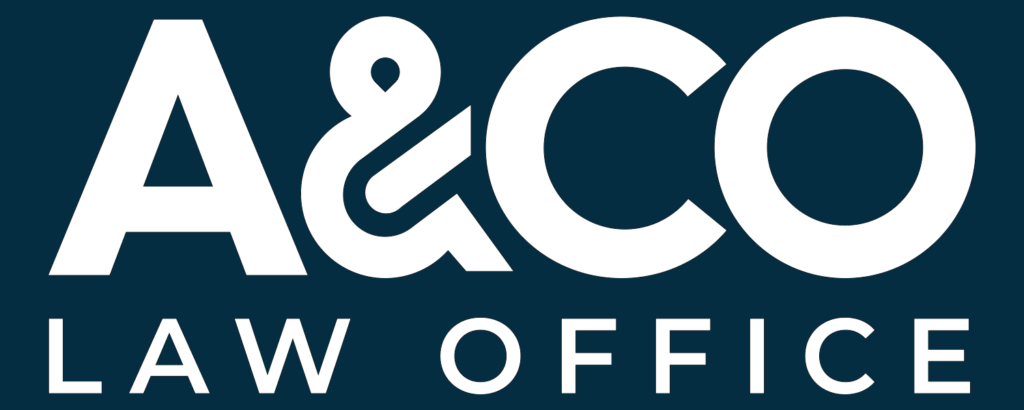

Since 2010, the Global Law Experts annual awards have been celebrating excellence, innovation and performance across the legal communities from around the world.
posted 8 months ago
Author: Dina Amini, S.H.
According to the Priority Watch List (PWL) issued by the United States Trade Representative (USTR) in 2023, Indonesia remains on the list of countries assessed by the United States as having significant intellectual property (IP) violations[1]. The rapid expansion of free trade and the increasing number of trade agreements ratified by Indonesia have made the issue of intellectual property protection a primary concern for the government. As an actualization of commitment to control the import and export of goods indicated to be resulting from IP infringements, the Indonesian government through the Directorate General of Customs and Excise (“DGCE”) issued an IP protection policy, namely IP Recordation in the customs database owned by the DGCE, as regulated by the Republic of Indonesia Government Regulation Number 20 of 2007 on Control of the Import or Export of Goods indicated to be or allegedly resulting from infringements of intellectual property rights (“GR 20/2017”), and Minister of Finance of the Republic of Indonesia Regulation Number 40/PMK.04/2018 on Recordation, Deterrence, Guarantee, Temporary Suspension, Monitoring and Evaluation to Control the Import or Export of Goods Suspected of Constituting or Resulting from Infringements of Intellectual Property Rights (“MoF Reg. 40/2018”).
Based on this regulation, the DGCE is authorized to take preventive measures, which is to conduct deterrence of the goods that are suspected of constituting or resulting from IP infringements in the form of Trademarks and Copyrights, provided that the IP has been previously approved and recorded in the DGCE’s recordation system. Therefore, the purpose and benefits of this recordation itself are prevention before IP-infringing goods are distributed in the domestic market, protect the business processes of IP holders/owners, and enhancing the confidence of both domestic and foreign investors.
The following will elaborate further on the procedures for IP Recordation in DGCE database, and the actions of Deterrence and Suspension as legal protection measures for registered IP in the Recordation system.
Intellectual Property Recordation Application
Owner/holder of Trademarks or Copyrights may submit an application to the DGCE official for registration in the DGCE’s recordation system, which is done in writing to the Director of Enforcement and Investigation of the DGCE Head Office, and also submitted electronically through the CEISA HKI application accessible on the service user portal (https://customer.beacukai.go.id).[2] The applicant must be a business entity domiciled in Indonesia.[3] The application is submitted by enclosing the following documents: [4]
Subsequently, the IP owner or holder must appoint an Examiner who understands and is competent in assessing the authenticity of the Trademarks and Copyrights of the goods to be recorded in the DGCE’s Recordation. The Examiner will then make a presentation to and be interviewed by DGCE officials.[5]
Upon submission of the application, DGCE officials will conduct the Formal and Substantive Examinations.[6] The Formal Examination includes the completeness of filling out the application form and its attachments, while the substantive examination involves reviewing the accuracy and validation of the application data, as well as reviewing the results of the presentation and interview conducted with the IP owner/holder and the Examiner. [7]
Based on the examination results, DGCE officials will approve or reject the application within a maximum period of 30 (thirty) days from the date of receipt. [8] If the Formal Examination results are not fulfilled, the application will be returned to the applicant for correction and/or completion. [9] However, if the Substantive Examination results are not fulfilled, the Director of DGCE will notify the applicant of the rejection along with the reasons for the rejection. [10] If the application is approved, the approval of registration in the DGCE’s recordation system will be valid for a maximum period of 1 (one) year from the date of approval and may be extended. [11] This extension must be submitted to DGCE no later than 30 (thirty) days before the Recordation period expires. [12] If the application is not extended, the IP holder or owner must submit a new application. [13]
Post-Intellectual Property Recordation
The IP owner or holder must send a notice if there is a change in the IP data that have been recorded. [14] This change request is submitted in writing and/or via electronic mail to the DGCE. Subsequently, DGCE officials will validate the changes and decide to grant approval or rejection within 30 (thirty) days since the notice of data changes is received in complete. [15]
In addition, DGCE officials will also conduct monitoring and evaluation of the data in the Recordation system at least once a year, which is conducted by way of field inspection. [16] Based on the monitoring and evaluation results, approval of Recordation may be revoked if: [17]
Deterrence by DGCE
As a form of legal protection for registered IP in the DGCE’s Recordation system, DGCE officials may take preventive action in the form of Deterrence against imported or exported goods suspected of or originating from IP violations based on sufficient evidence.[18] Deterrence means administrative action to delay the release, loading, and transportation of imported or exported goods until customs obligations are fulfilled. [19] In the event that an alleged IP infringement is discovered, supervising DGCE officials will notify the IP owner or holder through the CEISA Application System and/or electronic mail. [20] Subsequently, the IP owner or holder must confirm the notification to DGCE officials no later than 2 (two) days after the notification date. [21] This confirmation includes: [22]
Suspension essentially consists of the same actions as Deterrence, but Suspension is based on a court order. [23] In the event that the IP owner or holder provides confirmation to apply for Suspension, within a maximum period of 4 (four) working days after confirmation, the IP owner or holder must: :[24]
DGCE official who conducts supervision may:
Furthermore, if the Suspension application has been registered with the Commercial Court at the District Court, referring to Article 8 of the Supreme Court Regulation Number 6 of 2019 concerning Temporary Suspension Orders (“SC Reg 6/2019“), the Panel of Judges will issue a Suspension Order no later than 2 (two) days after the application registration. Subsequently, DGCE officials will implement the Suspension within 10 working days and determine the date for physical examination of the goods under Suspension. This physical examination is conducted by the IP owner or holder together with DGCE officials, representatives from the Court, representatives from the Directorate General of Intellectual Property, and importers/exporters.
The IP owner or holder is responsible for all operational costs arising from Prevention and Suspension of goods suspected of or originating from IP infringement, including inspection costs, dismantling costs, storage costs, transportation costs, container rental costs; and/or other necessary costs.
After the physical examination is conducted and there is sufficient evidence of an IP infringement, the Judge will render a decision confirming the Suspension Order. [26] Subsequently, the IP owner or holder may take legal action in accordance with applicable laws and regulations. [27]
[1] https://ustr.gov/about-us/policy-offices/press-office/press-releases/2023/april/ustr-releases-2023-special-301-report-intellectual-property-protection-and-enforcement
[2] Article 5 of GR 20/2017
[3] Article 5 paragraph 3 of GR 20/2017
[4] Article 5 paragraph 2 of GR 20/2017
[5] Article 3 paragraph 3 of MoF Reg. 40/2018
[6] Article 4 of MoF Reg. 40/2018
[7] Article 1 point 15 of MoF Reg. 40/2018
[8] Article 5 paragraph 4 of MoF Reg. 40/2018
[9] Article 6 paragraph 2 of MoF Reg. 40/2018
[10] Article 6 paragraph 3 of MoF Reg. 40/2018
[11] Article 5 paragraph 5 of MoF Reg. 40/2018
[12] Article 7 paragraph 3 of MoF Reg. 40/2018
[13] Article 7 paragraph 4 of MoF Reg. 40/2018
[14] Article 8 paragraph (1) of MoF Reg. 40/2018
[15] Article 8 paragraphs (3) and (4) of MoF Reg. 40/2018
[16] Article 25 paragraph (1) of MoF Reg. 40/2018
[17] Article 25 paragraph 3 of MoF Reg. 40/2018
[18] Article 10 paragraph (1) of MoF Reg. 40/2018
[19] Article 1 point 7 of MoF Reg. 40/2018
[20] Article 10 paragraph 5 of MoF Reg. 40/2018
[21] Article 11 paragraph (1) of MoF Reg. 40/2018
[22] Article 11 paragraph 2 of MoF Reg. 40/2018
[23] Article 1 point 6 of MoF Reg. 40/2018
[24] Article 11 paragraph (3) of MoF Reg. 40/2018
[25] Article 12 paragraph (1) of MoF Reg. 40/2018
[26] Article 14 paragraph (4) of SC Reg. 6/2019
[27] Article 17 of SC Reg. 6/2019
Author


No results available
Resetposted 1 hour ago
posted 18 hours ago
posted 1 day ago
posted 4 days ago
posted 5 days ago
posted 5 days ago
posted 1 week ago
posted 1 week ago
posted 2 weeks ago
posted 2 weeks ago
No results available
ResetFind the right Legal Expert for your business
Sign up for the latest legal briefings and news within Global Law Experts’ community, as well as a whole host of features, editorial and conference updates direct to your email inbox.
Naturally you can unsubscribe at any time.
Global Law Experts is dedicated to providing exceptional legal services to clients around the world. With a vast network of highly skilled and experienced lawyers, we are committed to delivering innovative and tailored solutions to meet the diverse needs of our clients in various jurisdictions.